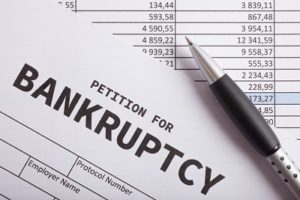 People often think that their finances are in a bad place, but that maybe they will get better. Some people think that maybe they should try a debt consolidation company. Many don’t want to file bankruptcy for fear that it will ruin their credit. These are all legitimate concerns. If a bankruptcy is the best option, then an attorney can help you determine what chapter of bankruptcy you should file.
People often think that their finances are in a bad place, but that maybe they will get better. Some people think that maybe they should try a debt consolidation company. Many don’t want to file bankruptcy for fear that it will ruin their credit. These are all legitimate concerns. If a bankruptcy is the best option, then an attorney can help you determine what chapter of bankruptcy you should file.
Bankruptcy
There are a few basics to know when starting the bankruptcy process. You will need to present your past six months of income because that will determine your eligibility to file a Chapter 7 bankruptcy and it will help determine your monthly payment if you must file a Chapter 13 bankruptcy. Also, your assets that you own will be reviewed, particularly real estate, to determine what, if anything, you own would be sold by the trustee if you file bankruptcy. In many bankruptcy cases, people do not have any property sold by the trustees. It is not uncommon for someone to give up a house in a bankruptcy, but that is usually because that person simply owes more than the house is worth and keeping the house just doesn’t make good financial sense since the mortgage obligation can be terminated through the bankruptcy.
Why You Should Not Hold Off
Many people hold off or resist filing bankruptcy all together for fear that a bankruptcy filing will ruin their credit. While it is true that a bankruptcy will have a negative impact on a credit score, filing bankruptcy is not all bad news for a person’s credit. Once a bankruptcy filer, also known as a debtor, obtains a discharge in bankruptcy, his or her pre-bankruptcy debt will be wiped out and removed from the credit reports (except for secured debt that the debtor chooses to keep or debts that are not discharged such as student loans and most taxes). Reducing debt on a credit report will help the debtor’s credit score. Therefore, filing a bankruptcy really cuts both ways when it comes to the debtor’s credit. Oftentimes, debtors are so far behind on their credit card bills that they will realistically never catch them up. Discharging those bills in bankruptcy and getting a fresh start is usually the best way to improve their credit in the long run. While it is true that the bankruptcy itself will negatively impact a credit score, the bankruptcy often enables people to get rid of their debt and start to rebuild their credit.
Chapter 13 Bankruptcy
For someone trying to save a home who is behind on mortgage payments to the lender, a Chapter 13 bankruptcy may be the only practical option. As long as a debtor can demonstrate to the Bankruptcy Court that the debtor can catch up the arrears on the mortgage over a period of 60 months or less and make any other required payments in the Chapter 13 bankruptcy, the debtor can use a Chapter 13 to save the home from foreclosure. Even if the bank has foreclosed on the house and there is a sheriff’s sale date in the future, a Chapter 13 bankruptcy filing will stop the sheriff’s sale. Similarly, if a debtor owes the IRS and the IRS is taking collection action, a Chapter 13 bankruptcy will stop the IRS’s collection efforts and give the debtor 60 months to pay what is owed to the IRS.
Debt Consolidation
Debt consolidation is an option for many; however, it’s important to note that you will need to keep up with your monthly payments. Many people pay a debt consolidation company for a year or more only to default on the debt consolidation plan, and then end up right where they were. That is not to say debt consolidation plans never work. However, it can be suggested that a person with financial difficulties consult with a bankruptcy attorney before starting a debt consolidation plan.
